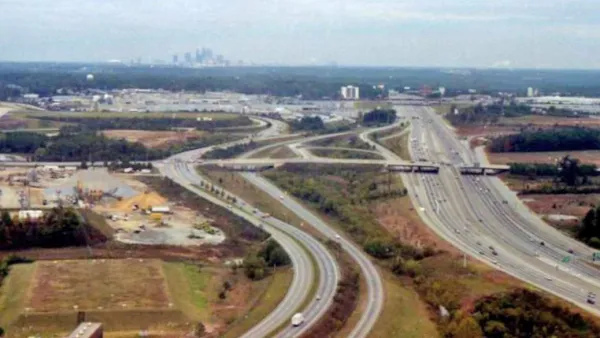Irvin Dawid discovered Planetizen when a classmate in an urban planning lab at San Jose State University shared it with him in 2003. When he left San Jose State that year, he took with him an interest in Planetizen, if not the master's degree in urban & regional planning.
As a long-time environmental activist, he formed the Sustainable Land Use committee for his local Sierra Club chapter and served six years on the Bay Area Air Quality Management District’s Advisory Council from 2002-2008. He maintains his interest in air quality by representing Sierra Club California on the Clean Air Dialogue, a working group of the Calif. Environmental Dialog representing business, regulatory and public health/environmental interests.
Major interests include transportation funding, e.g., gas taxes, vehicle miles traveled (VMT) fees, road tolls and energy subsidies that lead to unlevel playing fields for more sustainable choices.
He hails from Queens (Bayside) and Long Island (Great Neck); received an AAS in Fisheries & Wildlife Technology from SUNY Cobleskill and a B.S. from what is now Excelsior College.
After residing for three years on California’s North Coast, he’s lived on the San Francisco Peninsula since 1983, including 24 years in Palo Alto. Home is now near downtown Burlingame, a short bike-ride to the Caltrain station.
He’s been car-free since driving his 1972 Dodge Tradesman maxi-van, his means to exit Long Island in 1979, to the junkyard in 1988.
Major forms of transportation: A 1991 'citybike' and monthly Caltrain pass, zone 2-2. "It's no LIRR, but it may be the most bike friendly train in America."
Irvin can be reached at [email protected]
The Positive Energy Potential of Suburban Sprawl
What if most cars were electrics, most electricity was generated locally, and new development was required to have solar? Would this paradigm make sprawl more energy sustainable than compact growth? A new paper argues yes.
With Pedestrianization Plan, the Eternal City Looks to Ban a Modern Scourge
Mayor Ignazio Marino of Rome has banned private vehicles from Via dei Fori Imperiali, built by Benito Mussolini to link his palace in Piazza Venezia to the Colosseum. Initially open to buses and taxis, it will eventually be completely pedestrianized.
Governor Keeps BART Trains Rolling
BART commuters were undoubtedly delighted to board trains on Monday morning thanks to Gov. Jerry Brown's last minute action to return BART employees to work for one week while a panel investigates why negotiations have stalled.
Penn Station Access Plan Has Long Island Legislators Worried
While MTA’s East Side Access project, which will bring Long Island Rail Road (LIRR) trains directly to Grand Central Terminal by 2019, has received much attention, less well-know is a complementary plan to bring Metro-North trains to Penn Station.

Bemoan Atlanta, as Well as Detroit, Writes Columnist
New York Times columnist Paul Krugman looks at two great American cities, one losing population for decades and now filed for bankruptcy, the other growing rapidly but through sprawl, not smart growth. Yet Atlanta suffers lower social mobility.

























